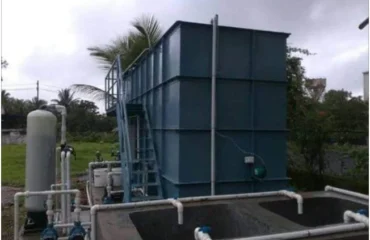Introduction
The pharmaceutical industry is vital for health advancements but also generates significant amounts of wastewater, containing harmful contaminants that need careful treatment. In Dombivali, Amrita Water Solution excels in providing state-of-the-art Sewage Treatment Plants (STP) and Effluent Treatment Plants (ETP) designed to handle the unique challenges of pharmaceutical wastewater. This article delves into the necessity, components, and benefits of implementing STP and ETP plants in the pharmaceutical industry within Dombivali.
Importance of Wastewater Treatment in the Pharmaceutical Industry
Environmental Protection
Pharmaceutical wastewater often contains active pharmaceutical ingredients (APIs), chemicals, and other harmful substances. Effective treatment is essential to prevent these pollutants from damaging the environment and entering water bodies, which can harm aquatic life and human health.
Regulatory Compliance
Adhering to stringent regulations set by the Central Pollution Control Board (CPCB) and state authorities is mandatory. Effective wastewater treatment ensures compliance, helping pharmaceutical companies avoid legal penalties and operational shutdowns.
Sustainable Practices
Sustainable wastewater management practices demonstrate a commitment to environmental stewardship. Companies that invest in such practices can enhance their corporate image, gain stakeholder trust, and secure long-term operational stability.
Key Components of STP and ETP Plants
Primary Treatment
Primary treatment focuses on removing large solids and organic matter through physical processes.
Screening
Screens filter out large debris and particles, protecting the subsequent treatment processes from clogging or damage.
Sedimentation
Sedimentation tanks allow heavier solids to settle at the bottom, forming sludge that can be removed and treated separately.
Secondary Treatment
Secondary treatment biologically degrades dissolved organic matter, crucial for reducing biochemical oxygen demand (BOD) and chemical oxygen demand (COD).
Aeration
Aeration tanks introduce oxygen to stimulate aerobic bacteria, which break down organic pollutants effectively.
Activated Sludge Process
This process involves recycling a portion of the activated sludge to the aeration tank, maintaining high bacterial activity for efficient organic matter degradation.
Tertiary Treatment
Tertiary treatment further purifies the effluent by removing remaining contaminants.
Filtration
Advanced filtration methods, such as sand or membrane filters, are used to remove fine particles and microorganisms from the wastewater.
Disinfection
Chemical disinfection, using agents like chlorine or ultraviolet (UV) light, ensures the treated effluent is free of pathogenic microorganisms before discharge or reuse.
Benefits of STP and ETP Plants for the Pharmaceutical Industry
Improved Water Quality
Amrita Water Solution‘s STP and ETP plants ensure that treated wastewater meets or exceeds regulatory standards, significantly enhancing water quality and safeguarding public health.
Cost Efficiency
Investing in advanced wastewater treatment systems can lead to long-term cost savings by reducing the risk of regulatory fines, lowering water procurement costs through water reuse, and minimizing waste disposal expenses.
Corporate Social Responsibility (CSR)
Implementing advanced wastewater treatment solutions reflects a company’s commitment to environmental sustainability and social responsibility, enhancing its corporate image and attracting eco-conscious investors and customers.
Challenges and Solutions in Implementing STP and ETP Plants
High Initial Investment
Setting up advanced STP and ETP plants requires a significant initial investment. Amrita Water Solution offers scalable solutions and flexible financing options to help manage these costs effectively.
Technical Expertise
Operating and maintaining STP and ETP plants necessitates specialized technical knowledge. Amrita Water Solution provides comprehensive training and ongoing support to ensure that the client’s staff can operate the systems efficiently.
Space Constraints
Urban areas like Dombivali often face space limitations. Amrita Water Solution designs compact, modular plants that fit within limited spaces without compromising performance.
Conclusion
In conclusion, the pharmaceutical industry’s adherence to environmental regulations and commitment to sustainable practices is crucial for its ongoing success. Amrita Water Solution offers comprehensive STP and ETP solutions tailored to meet the specific needs of pharmaceutical wastewater management in Dombivali. By investing in these advanced treatment technologies, pharmaceutical companies can improve their environmental performance, achieve cost savings, and contribute to a sustainable future.


